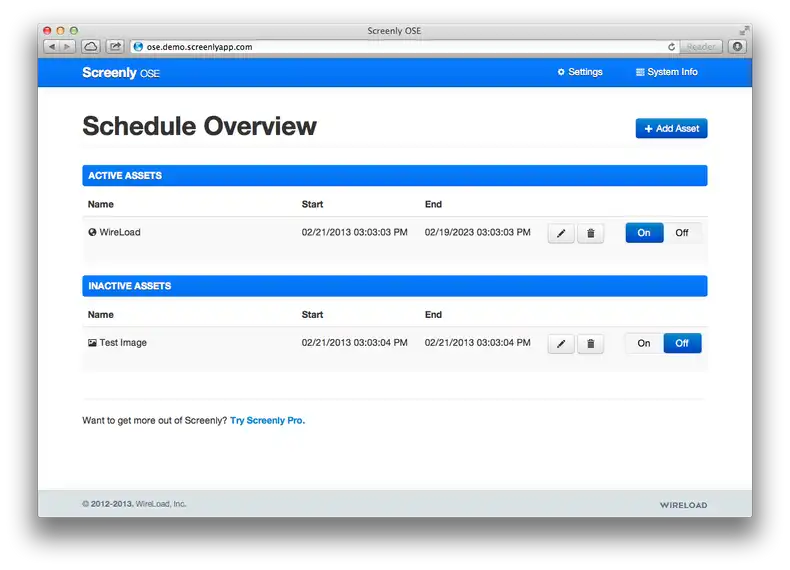Digital Signage is something that has been around for some time. Today, you can find digital signs everywhere. They are used for everything from displaying the menu at your local fast food restaurant to covering buildings with ads to in-store advertisements.
When we first analyzed this market, we noticed that most available digital signage products fell into one of two buckets:
- Bloated and overpriced embedded solutions with decent functionality
- Home-made solutions that were often buggy and relied on Adobe Flash
What we wanted was an affordable, modern and lightweight solution, but no such solution existed.
When the Raspberry Pi was announced, we had an “aha” moment. This was what was needed to reinvent the industry. At only $35, the Raspberry Pi was accessible to everyone. Additionally, the hardware was powerful enough to support full-HD playback.
After spending a few months on the waitlist, we got our Rasperry Pi last summer and got busy cranking out a prototype. The result was a set of a turn-key digital signage solutions and the birth of our company, Screenly. All you need to manage Screenly digital signage solutions is your web-browser.

Screenly’s digital signage solution is available in two flavors: OSE and Pro.
Screenly OSE is Open Source. Anyone can install, modify and use it free of charge. This edition is available today. All you need to use Screenly OSE is a Raspberry Pi and a TV. The installation instructions can be found here. The limitation with Screenly OSE is that it is designed for a stand-alone setup. If all you need is to setup a single screen, Screenly OSE is the perfect fit for you. You can find an online demo here. The full source code for Screenly OSE is available on GitHub.
The paid version of Screenly, on the other hand, is a commercial solution. It was designed for users who want to manage multiple nodes (or screens). It runs on the same hardware as Screenly OSE, but it provides you with a convenient cloud interface for your digital signage management. Screenly also provides you with other benefits, such as system hardening, node alarm/health monitoring and more. Screenly is currently in beta.




